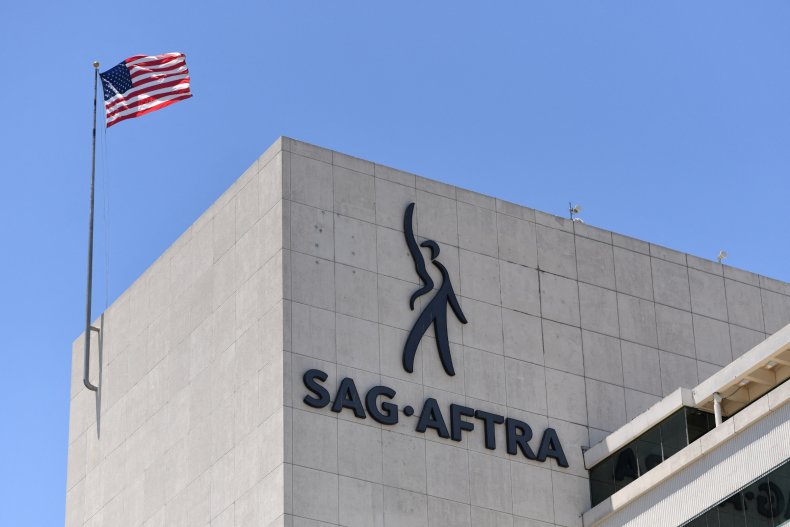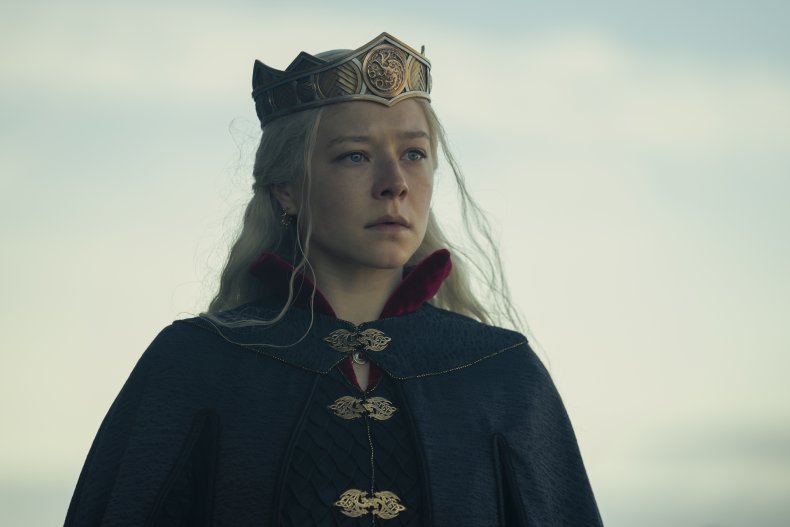As production in Hollywood grinds to a halt following the announcement that film and TV actors have gone on strike, a technicality could mean some prominent productions will quietly continue amid the protests.
On Thursday after negotiations broke down over pay structures, the Screen Actors Guild—American Federation of Television and Radio Artists (SAG-AFTRA) decided its 160,000 members would go on strike starting at midnight.
The move meant the actors would join members of the Writers Guild of America who have been on the picket lines for the past six weeks. This has essentially shut down Hollywood, marking the first time in more than 60 years that both groups have staged a walkout.
Both unions have locked horns with the Alliance of Motion Picture and Television Producers (AMPTP) over contractual terms, including pay. The studios' refusal to rule out artificial intelligence one day replacing human workers escalated the tensions. The AMPTP comprises the major studios: Netflix, Amazon, Apple, Disney, Warner Bros., NBC Universal, Sony and Paramount.

There have also been issues with actors and screenwriters' compensation not correlating with the billions of streams that shows and films now often draw.
In a statement shared with Newsweek, representatives of AMPTP said that the trade association "presented a deal that offered historic pay and residual increases, substantially higher caps on pension and health contributions, audition protections, shortened series option periods, and a groundbreaking AI proposal that protects actors' digital likenesses for SAG-AFTRA members."
"A strike is certainly not the outcome we hoped for as studios cannot operate without the performers that bring our TV shows and films to life," the statement continued. "The Union has regrettably chosen a path that will lead to financial hardship for countless thousands of people who depend on the industry."
As the strike was announced, Matt Damon, Emily Blunt, Rami Malek, Cillian Murphy and Florence Pugh walked out of the London premiere of their new movie, Oppenheimer. The promotion of film and TV projects is prohibited during strikes, as are reshoots on productions that have already started.
However, while actors across the U.S. stop working, Deadline has reported that production on the HBO shows House of the Dragon and Industry will continue in the U.K. over the summer. The same has been reported for HBO Max's Dune prequel series, Dune: The Sisterhood, which is set to relaunch production in Budapest, Hungary.
What makes this possible is that these productions, while essentially watched as American shows, have a mix of staffers and cast members who are members of different unions and therefore do not fall under strike rules.
All of the aforementioned productions are productions that fall under the British union Equity, with the inclusion of some SAG-AFTRA members. The U.S. guild has provided guidance that says its members under Equity contracts must "continue to report."
Those carrying SAG-AFTRA cards could decide to boycott, but because of anti-trade-union laws in the U.K. that prevent members from striking in solidarity with those in other countries, they would expose themselves to lawsuits from the studios. This could essentially force them back on the set. Ken Leung and Myha'la Herrold are two American actors in Industry who are expected to continue work.
Further compounding the issue is that Equity, which has 47,000 members from various areas of entertainment, has issued guidance saying its members should continue to report to work.
Newsweek has contacted a representative of HBO and HBO Max via email for comment.

'Unwavering Solidarity'
In a statement, Equity told Newsweek that it stands in "unwavering solidarity" with SAG-AFTRA while criticizing the "draconian" legislation it is bound by.
"Equity stands full square behind our sister union in their claim and the action their Board have agreed to take," the statement said. "Equity too is experiencing bullish engagers attempting to undermine its collectively bargained agreements. SAG-AFTRA has our total solidarity in this fight."
The statement went on: "We say clearly to the AMPTP and their members that they need to move significantly and swiftly to meet the reasonable aspirations of SAG-AFTRA's members. The members of our unions, and all entertainment unions across the globe, create the vast wealth within our industry—it is right and just that they have decent, modern pay and conditions."
The statement said that industrial relations legislation in the United Kingdom is "draconian and often viewed as the most restrictive in the Western world."
"The convoluted and pernicious hurdles faced by all unions in the United Kingdom are a national disgrace and need urgent reform. The regrettable consequence of this framework is that what artists working in the United Kingdom—whether SAG-AFTRA and/or Equity members (or both)—can do may be different from their comrades in the United States and other parts of the world," the statement said.
It added that Equity is fighting alongside the rest of the trade union movement in the U.K. "to reform our illiberal industrial relations framework in parliament, in the courts, and on the streets."
'No Protection'
In an advisory message sent to its members, Equity said its lawyers have stated that joining the strike "is not lawful under United Kingdom law."
"Consequently, a performer joining the strike (or refusing to cross a picket line) in the U.K. will have no protection against being dismissed or sued for breach of contract by the producer or the engager," the message went on. "Likewise, if Equity encourages anyone to join the strike or not cross a picket line, Equity itself will be acting unlawfully and hence liable for damages or an injunction."
Screen Daily reported that some of the other projects already in the making, or expected to go into production, in the U.K. and Ireland this year are the Star Wars Rogue One prequel Andor, Idris Elba's miniseries Knuckles, the Elisabeth Moss movie The Veil, the Eddie Redmayne film The Day of the Jackal, the second season of The Sandman, the sequel Beetlejuice 2, and the CIA thriller Amateur, starring Malek, Laurence Fishburne and The Marvelous Mrs. Maisel's Rachel Brosnahan.
With various fiscal and logistical factors contributing to the ever-increasing number of Hollywood productions now heading overseas, has SAG-AFTRA lost the negotiating power it wielded during the previous actors' strike, in 1960? Not necessarily.
Hannah Yelin, network lead for the Creative Industries Research and Innovation Network at Oxford Brookes University in the U.K., said it would make a difference if those across the pond are willing to act in defiance on issues that also affect them.
"Right now is an incredibly significant juncture in terms of how we as a society value the labor of those in the creative industries and what we want those industries to look like in the future," she told Newsweek.
"I hope Equity members will strike in solidarity rather than take advantage of the opportunity to take on extra work created by the strikes. The latter would be myopic, as related cultural, social and technological forces are coming for their pay and working conditions. For all of us, really. These strikes have wide-reaching ramifications," she said.
Yelin, the author of Celebrity Memoir: From Ghostwriting to Gender Politics, added that "people don't realize how many types of work will be under similar threat. It's exciting to see actors joining striking writers who have already shown amazing fortitude. Studio bosses are inevitably looking for workarounds. And in a globalized marketplace, there will be many."
The success or failure of strikes, she said, "often hinges upon such loopholes. But as well as being a crucial time for the creative industries, the present juncture also shows a renewed energy for and urgency to collective action and defending the right to strike which hopefully will prevail."
Update 7/18/23, 3:13 p.m. ET: This article has been updated with a statement from AMPTP.








